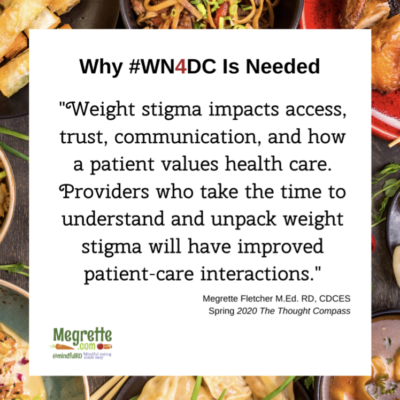Patients have said to me, “My PCP thinks that I overeat, but I am not overeating. They think that I am not exercising or that I am lazy. They just don’t believe me, and it is frustrating because they stop listening.” Poor communication is often at the heart of outcomes. Failure to talk about the underlying pathophysiology of diabetes, including that weight gain, often precedes the diagnosis is often missing. Also, much evidence suggests that insulin resistance is a product of an underlying metabolic disturbance that predisposes the individual to increased fat storage due to compensatory insulin secretion. In other words, “obesity” may be an early symptom of diabetes as opposed to its primary underlying cause.

Weight changes are not limited to disease; they include limited food access, poverty, aging, medication, decreased physical activity, chronic dieting, experiencing weight stigma, increased calorie intake, secondary weight stigma, triggered eating behaviors, and ending restrictive eating.
While weight stigma initially appears to be a social or psychological phenomenon, it is the common denominator in all disordered eating behaviors, including DEB-D which makes it a medical issue. Weight stigma impacts access, trust, communication, and how a patient values health care. Providers who take the time to understand and unpack weight stigma will have improved patient-care interactions.
A more in-depth understanding of DEB-D and how weight stigma impacts diabetes care is available by enrolling in the WN4DC Symposium. The symposium offers healthcare professionals a chance to systematically learn about weight neutral care, counseling, and disordered eating in diabetes. To learn more visit www.wn4dcsymposium.com

